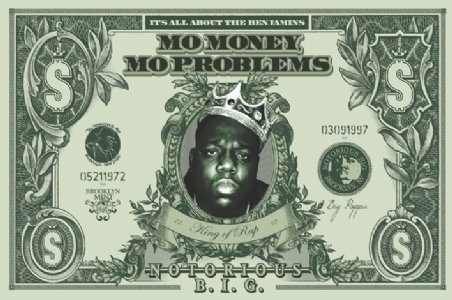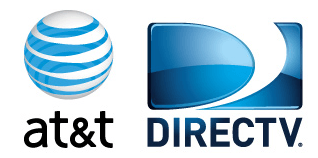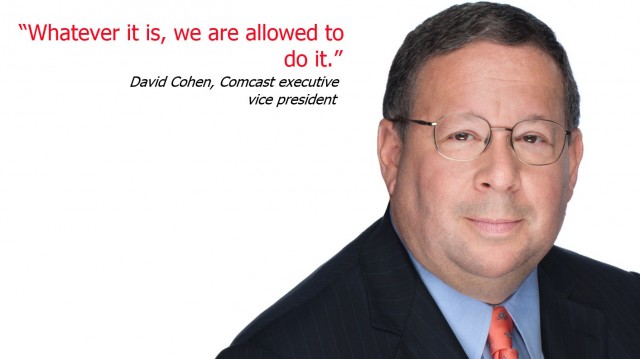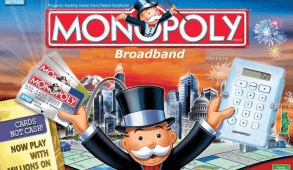
“More Caps” Moffett
If you are a cable executive looking to further gouge customers captive to your “only game in town” broadband speeds, now is the time to slap around customers with usage caps and overlimit fees, because your company may no longer be able to do that after June 12, when the FCC’s new Title II regulations officially take effect.
“If you’re a cable operator, you might want to strike while the iron is hot,” said MoffettNathanson principal and senior analyst Craig Moffett, who has shared his love for all-things-cable with investors for years.
Moffett regularly asks cable industry executives about when they plan to introduce usage limits or usage-based billing for customers who often have no other choice for 25Mbps service, the lowest speed that now qualifies as broadband.
But tricking customers into accepting industry arguments about “fair pricing” must be handled carefully, because making a mistake with customers could cost your executives their summer bonuses if the pocket-picking policies cause a revolt.
Multichannel News reminds its cable industry readers Time Warner Cable failed to start their usage cap experiment in 2009 due to a “furor” by customers (often led by us). Instead of filling their coffers with the proceeds of overlimit fees, “the cable giant [was forced] to rethink its pricing strategy, keeping prices the same for heavy users of bandwidth but offering discounts to customers whose usage was lighter.”

Image: schvdenfreude
Unable to get its definition of “fairness” across to customers, Time Warner Cable never had to look back, raking in greater and greater unlimited broadband profits quarter after quarter, even as their costs to deliver service continued to drop.
Faced with the prospect of a newly empowered FCC to keep cable industry abuses in check, Multichannel News tells cable executives the money party may be over before it begins if they wait too long:
Title II regulations, which reclassify broadband as a common- carrier service, are about to take effect June 12, and the Federal Communications Commission has said it would look closely at any usage-based pricing plans to determine if they discriminate against online video providers. That could force some Internet service providers to move to implement their version of usage-based pricing before the deadline.
To “soften the blow,” the trade journal reported Cox significantly increased usage caps and are setting the overlimit fee at $10 for each 50GB of excessive usage, much lower than wireless plan overlimit fees. Multichannel News suggests this will help customers “get accustomed to overage charges.”
But Cox customers in the Cleveland area may be able to turn the table on Cox.
“Let them get accustomed to the fact I am dumping them for WOW! the moment I receive official notification about the caps,” said Stop the Cap! reader Dave, who has a choice between Cox, AT&T, and WOW! — a competing cable operator without usage caps. “AT&T isn’t enforcing its cap around here either, so I am definitely canceling my service and have two other choices. People have to be willing to send a clear message usage caps are an absolute deal-breaker.”
Although usage caps are not affected by Net Neutrality regulations, the fact the cable industry faces added regulator scrutiny under Title II allows the FCC to put an end to practices it considers to be anti-competitive. Introducing usage caps for customers trying to find an alternative to Cox’s cable television package by watching online video instead may qualify.


 Subscribe
Subscribe The Federal Communications Commission’s Net Neutrality rules took full effect Friday, after a three-judge panel of the U.S. Court of Appeals for the D.C. Circuit denied petitions for a temporary stay of the rules made in separate lawsuits by AT&T and other telecom industry opponents.
The Federal Communications Commission’s Net Neutrality rules took full effect Friday, after a three-judge panel of the U.S. Court of Appeals for the D.C. Circuit denied petitions for a temporary stay of the rules made in separate lawsuits by AT&T and other telecom industry opponents.
 While consumer groups were busy fighting the Comcast-Time Warner Cable merger, AT&T’s $49 billion purchase of DirecTV has largely flown under the radar, with no comparable organized consumer opposition to the deal. But that does not mean the FCC will approve it as-is.
While consumer groups were busy fighting the Comcast-Time Warner Cable merger, AT&T’s $49 billion purchase of DirecTV has largely flown under the radar, with no comparable organized consumer opposition to the deal. But that does not mean the FCC will approve it as-is. A well-placed source in Washington, D.C. with knowledge of the matter tells Stop the Cap! the Federal Communications Commission is prepared to take a hard look at the issue of Internet data caps and usage-based billing if a major cable operator like Comcast imposes usage allowances on its broadband customers nationwide.
A well-placed source in Washington, D.C. with knowledge of the matter tells Stop the Cap! the Federal Communications Commission is prepared to take a hard look at the issue of Internet data caps and usage-based billing if a major cable operator like Comcast imposes usage allowances on its broadband customers nationwide. “I’ve reviewed [the] account to see and can confirm the charges are valid,” responded a Comcast representative who defended the company’s usage cap trials. “Please understand that we are not here to take advantage of customers. We are here to provide a great customer service experience. After researching [the] account, at this time no matter what level of service you obtain, the Internet usage [allowance] will remain the same.”
“I’ve reviewed [the] account to see and can confirm the charges are valid,” responded a Comcast representative who defended the company’s usage cap trials. “Please understand that we are not here to take advantage of customers. We are here to provide a great customer service experience. After researching [the] account, at this time no matter what level of service you obtain, the Internet usage [allowance] will remain the same.”
